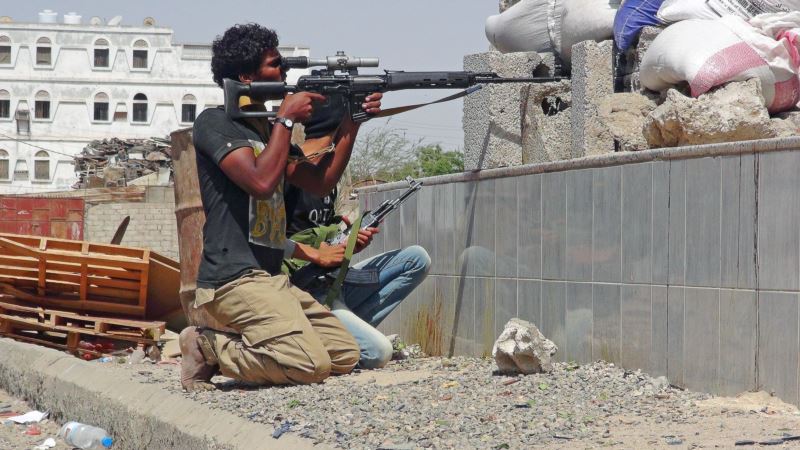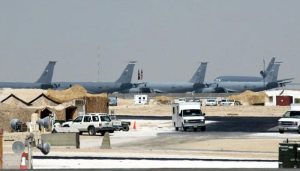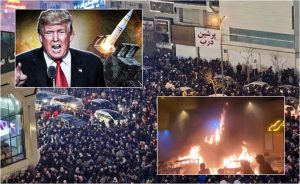ADEN (Web Desk) – Saudi Arabia is providing military training for hundreds of Yemeni tribesmen to fight the Houthi militia, sources familiar with the matter told Reuters on Thursday.
A Saudi-led alliance has been bombing the group from the air for over a month, but it remains Yemen’s dominant force. The kingdom announced last week it would rein in its strikes to give aid and reconciliation efforts more space, but the warring sides have made no visible progress toward talks.
“You cannot win a war against the Houthis from the air – you need to send ground forces in, but now there’s a program to train tribal fighters on the border,” said a Doha-based military source familiar with the matter.
This week 300 tribal fighters trained in Saudi Arabia were deployed back to their home area in the Sirwah district of central Marib province to fight the Houthis and managed to push the militia back, a Yemeni official source told Reuters.
Meanwhile, the Saudi air strikes and artillery fire rocked the southern Yemeni city of Aden overnight as combatants battled for control of the main airport in fighting described by residents as the worst in over a month of war.
Houthi rebels and local militiamen traded tank and mortar salvos in the Khor Maksar district around the airport perimeter throughout the night and a Saudi-led coalition bombed Houthi positions from the air.
Residents said dozens of families fled, braving Houthi sniper fire and checkpoints as homes were shelled and burned.
“The scene is disastrous, not just in the streets where fighting is going on but inside houses where families are often trapped and terrified,” local activist Ahmed al-Awgari said.
“Women and children have been burnt in their homes, civilians have been shot in the streets or blown up by tank fire,” he added.
Scores of residents and fighters from both sides have been killed throughout the conflict, and residents said at least six Houthis and two local militiamen were killed overnight.
So far the fighting and air strikes have killed more than 1,000 people, including an estimated 551 civilians since the bombings started on March 26, the United Nations said. Its children’s agency UNICEF said at least 115 children were among the dead.
The Houthis hail from Yemen’s far north and belong to the Zaydi sect of Shia Islam. They swept into the capital Sanaa in September and pushed south and east, saying they were winning a revolution against militants and corrupt officials. But their push into Aden’s outskirts on March 25 triggered a Saudi-led air campaign to drive them back and aid local gunmen.
The Saudi kingdom believes the group is a proxy for Iran, and Saudi backing for the resistance in Yemen’s mostly Sunni south has raised fears that Yemen could descend into all-out sectarian war.
Yemen’s vice president in exile, Khaled Bahah, said that the breakdown of Yemen’s military during the conflict was helping al-Qaeda in the Arabian Peninsula (AQAP), the boldest branch of the global militant group, and said the Houthis were not confronting them.
“All we’re seeing is them making war on the Yemeni people, not al Qaeda,” Bahah told Qatar-based al-Jazeera TV. “Al Qaeda has advanced and taken some positions in Yemen because of the security and military vacuum,” he added.
A Saudi defense source said there was a plan to bolster Yemeni forces in the battles raging across the country because locals knew the terrain better than Saudis.
“The problem is the number of tribal fighters being trained is very small and not enough,” said the Yemeni source who declined to be named, adding that the training includes giving the fighters light weapons and tactical advice.
The Houthi gains have forced President Abd-Rabbu Mansour Hadi to flee into exile in Riyadh. The Saudi campaign aims to restore Hadi and prevent Yemen collapsing as a state.
Al Qaeda militants have thrived in the chaos, and the writ of the military and central government has evaporated in the country, which sits astride one of the world’s busiest oil shipping lanes.
Asked about the training, Saudi Arabia’s coalition spokesman, Brigadier Ahmed Asseri, told Reuters he could not comment on operations that were still underway, but did not deny that such training was taking place.
“We always comment on what is achieved. We never comment on something in the future. We don’t want to put the security and safety of any one of the soldiers in danger.”
“We always confirm that we are helping the resistance and the popular groups, the loyal army … but we cannot go into details on where, how, how much,” he said.
In an attempt to cobble together a united tribal front against the Houthis, Saudi Arabia has invited heads of tribes for a meeting in Riyadh, Yemeni sources told Reuters.
Much of the armed opposition to the Houthi advance has been from local southern fighters, many of whom resent the north and seek secession.
“Saudi Arabia wants to unite tribal leaders in this meeting but the feeling is that there’s not much hope for that,” said a Yemeni source currently in Riyadh.














